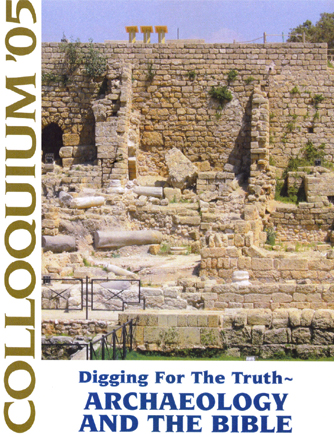In October 2005, the International Institute for Secular Humanistic Judaism invited Israel Finkelstein and Amihai Mazar to speak on the historicity of ancient Israel. The proceedings of Colloquium ’05 were published by the Society of Biblical Literature as The Quest for the Historical Israel: Debating Archaeology and the History of Early Israel.
Videos of the lectures have now been made available on YouTube.
“Archaeology and the Bible” Israel Finkelstein
“Archaeology and the Bible” Amihai Mazar
“When Did the Jewish People Begin?” Israel Finkelstein
“When Did the Jewish People Begin?” Amihai Mazar
Colloquium Panel Response: When Did the Jewish People Begin?
“The Truth About Solomon’s Temple” Israel Finkelstein
“The Truth About Solomon’s Temple” Amihai Mazar
Colloquium Panel Response: Truth About Solomon’s Temple
“The Kingdoms of Israel And Judah” Israel Finkelstein
“The Kingdoms of Israel and Judah” Amihai Mazar
Colloquium Panel Response: Israel And Judah
“Patriarchs, Exodus, Conquest: Fact or Fiction?” Israel Finkelstein
“Patriarchs, Exodus, Conquest: Fact or Fiction?” Amihai Mazar
Colloquium Panel Response: Patriarchs, Exodus, Conquest
Colloquium Panel Response: Implications
Israel Finkelstein – Jacob M. Alkow Chair in the Archaeology of Israel in the Bronze and Iron Ages at Tel Aviv University, author of The Bible Unearthed: Archaeology’s New Vision of Ancient Israel and the Origin of its Sacred Texts.
Amihai Mazar – Eleazar Sukenic Chair in the Archaeology of Israel ad Hebrew University in Jerusalem. Author ofArchaeology and the Land of the Bible.
Brian Schmidt (moderator) – Professor of Near Eastern Studies at the University of Michigan. Author of Israel’s Beneficent Dead.
Harry Cook (panel) – Episcopal minister and journalist, former columnist for the Detroit Free Press, author of Christianity Beyond Creeds and Sermons of a Devoted Heretic.
Yaakov Malkin (panel) – Professor of aesthetics and rhetoric at Tel Aviv University, author of many works including Judaism Without God – Judaism as Culture, The Bible as Literature.
Paula McNutt (panel) – Professor of Religious Studies and Dean of Arts and Sciences at Canisius College in Buffalo, NY.
Rabbi Sherwin Wine (panel) – founding rabbi of the Birmingham Temple and Humanistic Judaism, author of Judaism Beyond God and Staying Sane in a Crazy World.



 1:14:09
1:14:09 1:13:13
1:13:13 1:12:38
1:12:38 1:10:19
1:10:19 1:06:47
1:06:47 53:56
53:56 1:13:02
1:13:02 1:11:05
1:11:05 1:12:23
1:12:23 1:09:45
1:09:45 1:06:00
1:06:00 1:14:39
1:14:39 59:17
59:17 1:09:44
1:09:44 1:00:53
1:00:53 1:12:33
1:12:33 1:09:11
1:09:11 1:10:20
1:10:20 57:25
57:25 45:42
45:42 1:09:47
1:09:47 44:59
44:59 40:31
40:31 1:08:44
1:08:44 1:10:19
1:10:19 1:05:40
1:05:40 56:47
56:47